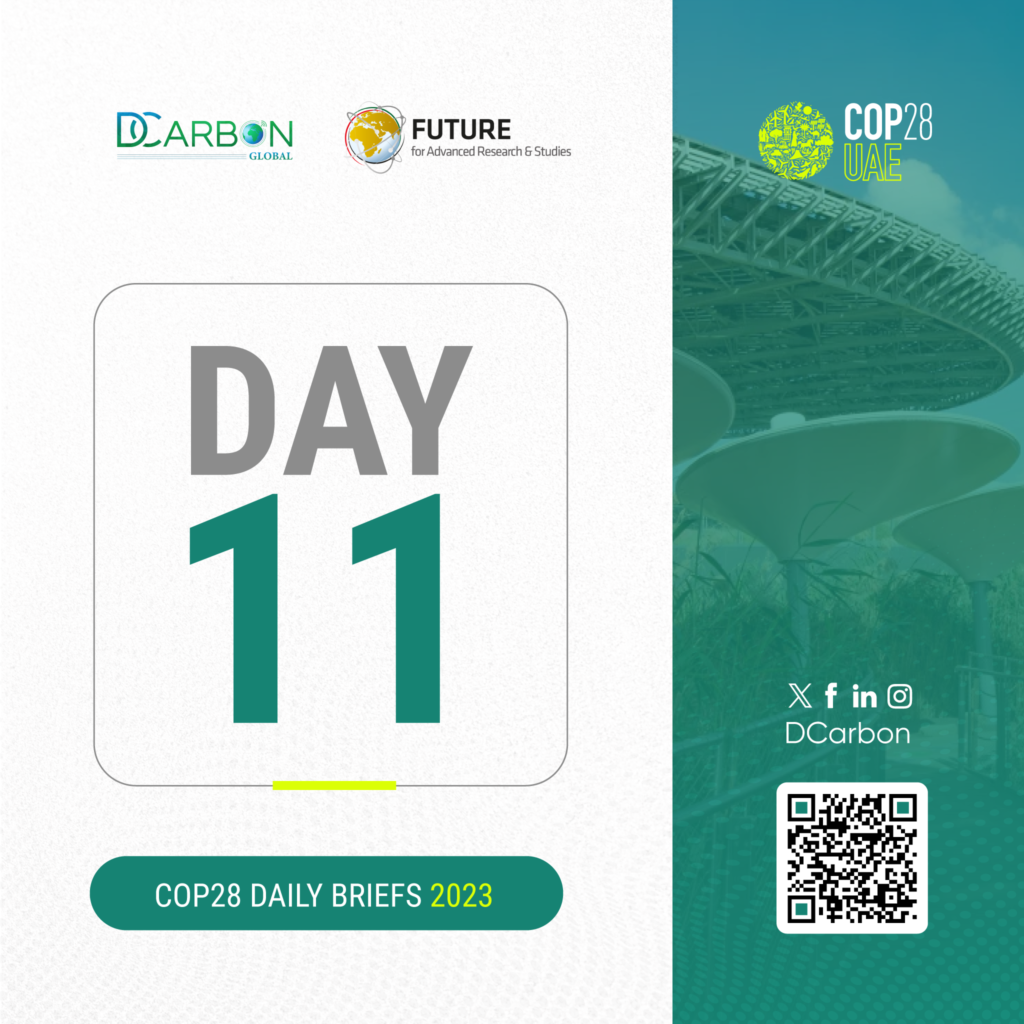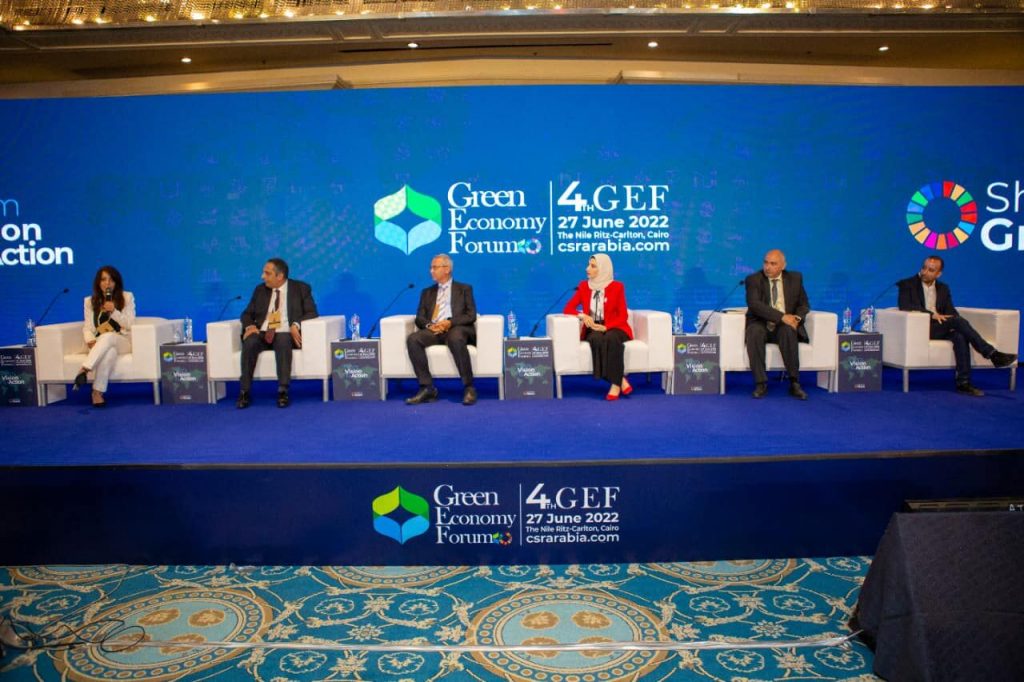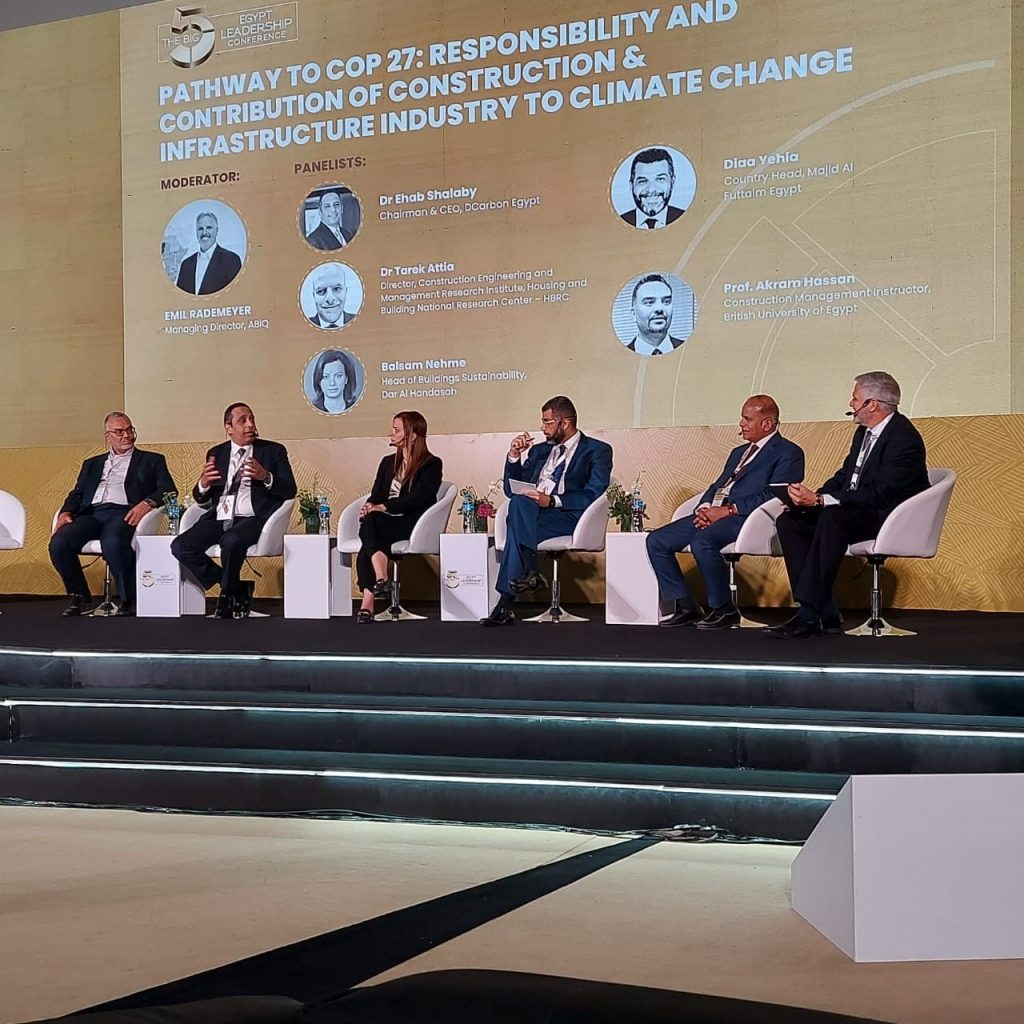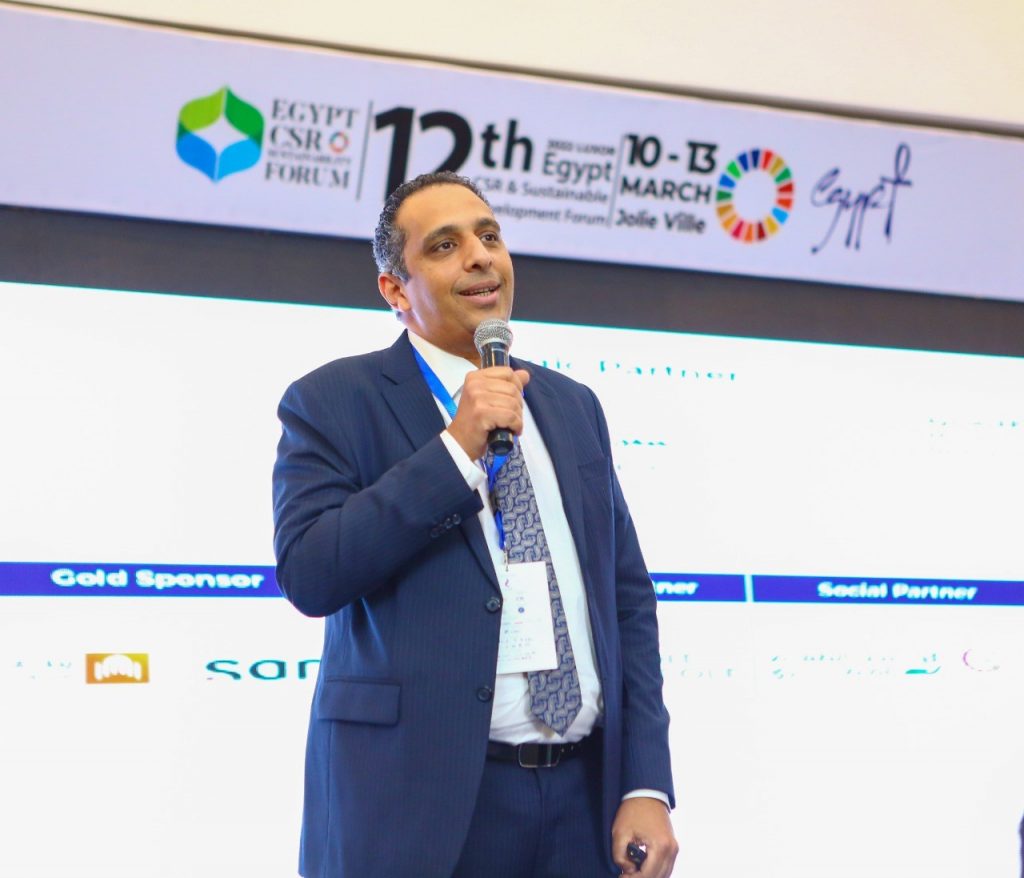Blue Zone
As one of the major impacts of climate related risks, food security is up-front-and-center. Therefore, Food and Agriculture Day at COP28 focused on the need to prioritize sustainable farming practices and invest in innovation to provide healthy food for all.
On the second day of COP28, 134 world leaders signed a historic declaration for more climate-resilient food systems and sustainable food production, underscoring the importance of food in tackling the climate crisis.
The Food and Agriculture Organisation (FAO) is set to launch its Global Roadmap for Agriculture report during the day. This report is anticipated to shed light on detailed strategies for simultaneously addressing global food security and reducing greenhouse gas emissions, recognizing the significant emissions associated with food production. The UN, until now, has lacked a comprehensive outline on how to balance feeding the world with the imperative to cut emissions.
Amidst discussions on food, agriculture, and water, negotiations on critical topics such as fossil fuels and climate finance are continuing at a swift pace as the summit approaches its final days. Updates on these negotiations will be provided, keeping the audience informed on the latest developments.
COP28: UN Unveils Ambitious Net-Zero Food Strategy to Preserve 1.5-Degree Target and Address Climate Concerns
As COP28 concludes in Dubai, the UN Food and Agriculture Organization (FAO) unveiled a groundbreaking plan to transition the world’s agrifood systems from net emitters to carbon sinks by 2050. The FAO identified 10 priority areas, including livestock, soil, water, crops, diets, and fisheries, to align with the roadmap and move closer to achieving the ‘Zero Hunger’ Sustainable Development Goal. The goal is to transform agrifood systems into carbon sinks, capturing 1.5 gigatons of greenhouse gas emissions annually, without surpassing the 1.5-degree limit set by the Paris Agreement. The plan, with 120 action points, aims for a system-wide transformation, urging policymakers, civil society, and the private sector to collaborate. FAO’s chief economist emphasized the need for climate investments in the food sector, given its significance in climate discussions and the current inadequacy of climate finance flowing to agrifood systems. The roadmap, discussed at COP28, aligns with the Emirates Declaration on Sustainable Agriculture, Resilient Food Systems, and Climate Action.
Emergence of a Seaweed Transformation
Vincent Doumeizel, Senior Advisor on Oceans to the UN Global Compact, advocates for a “seaweed revolution” as a transformative solution to global challenges. Doumeizel emphasizes seaweed’s untapped potential as a resource, describing it as a powerful tool to address climate, food security, and social crises. Seaweed’s rapid growth, absorbing more carbon than the Amazon Forest, makes it a sustainable substitute for plastics and a significant contributor to climate mitigation and biodiversity restoration. Doumeizel highlights the success of seaweed farming in East Africa, creating jobs and empowering women. He urges a shift in the narrative to inspire hope and optimism, envisioning a future where cultivating the ocean can feed the entire population, mitigate climate change, restore biodiversity, and alleviate poverty.
Farmers and Traditional Producers at The Heart of Food Systems Transformation
December 10th, the blue zone hosted this event to underscores the pivotal role of farmers and smallholders in addressing the climate crisis. Often the most affected by climate change, these stakeholders possess the potential to significantly enhance resilience and mitigation efforts. However, they are frequently sidelined in climate policy discussions. The event aims to spotlight smallholder producers as integral to climate solutions, exploring their innovative approaches and advancements. Key themes include agroecology, climate-smart agriculture, regenerative agriculture, family farming, and agrobiodiversity. This discussion seeks to bring attention to the invaluable contributions of these producers and their self-developed strategies.
High Level Ministerial Dialogue on Building Water-Resilient Food Systems
Over 130 world leaders convened at the World Climate Action Summit during UNFCCC COP28 in Dubai, where the COP 28 UAE Presidency announced the Declaration on Sustainable Agriculture, Resilient Food Systems, and Climate Action, emphasizing the crucial role of agriculture and food systems in achieving the long-term goals of the Paris Agreement. Recognizing the interlinked challenges of food, water, and climate crises, the declaration underscores the need for a holistic approach. This ministerial dialogue on building water-resilient food systems, co-hosted by the UAE and Brazil, will launch a two-year partnership under the UNFCCC Climate Resilient Food Systems (CRFS) Alliance that will support Parties and non-state actors ahead of COP30 to better integrate water and food systems management for both adaptation and mitigation in national climate plans. This initiative aims to integrate water and food systems management for adaptation and mitigation in national climate plans. Despite the substantial greenhouse gas emissions from the agriculture, forestry, and land-use sector, which provides significant mitigation opportunities, the sector receives only a small fraction of total climate finance. The financing gap in food systems and water infrastructure is estimated between USD 500 billion and USD 1 trillion. A white paper from IFAD and the NDC Partnership outlines a structured approach to address this gap, focusing on the “Four Bs” (Benefit-sharing, Investment bundling, Building for bankability, and Blending) and four investment pathways. The paper suggests coordinated multilateral, bilateral, and philanthropic investments to attract private investors and close the financial gap in food systems and water infrastructure. Deploying these actions globally will build sustainable and climate-resilient food systems, demonstrating the rationale for climate finance mobilization. The proposed strategic execution model calls for raising capital from public and private sources, providing technical assistance and advisory support to complement investments, and ensuring that finance aligns with transition capital, landscape-based capital, patient capital, or natural capital to address the diverse needs of climate-adaptive, water-resilient food systems.
UAE Hydrological Map
The Ministry of Energy and Infrastructure (MoEI) and the Environment Agency – Abu Dhabi (EAD) have jointly launched the UAE’s first hydrogeological map and geo-database, marking a significant milestone in documenting, and managing water sources to ensure sustainability and conservation. The hydrogeological maps encompass comprehensive data such as groundwater well locations, geology, geomorphology, dams, springs, groundwater quality, and meteorological data. Developed at different scales for regional and local perspectives, these maps will facilitate informed decision-making and policy formation for sustainable exploitation of aquifers, safeguarding against depletion and pollution, and optimizing land use. Aligned with the UAE Water Security Strategy 2036, the initiative aims to reduce water scarcity, enhance water productivity, and contribute to a 21% reduction in total water demand, with 95% reuse of treated water and conservation of groundwater resources. The hydrogeological map will serve as a crucial tool for policymakers in implementing sustainable water management practices tailored to the UAE’s unique conditions and challenges. The collaboration between MoEI and EAD reflects a commitment to employing advanced technologies and strategies to ensure water security and preserve this vital resource for future generations. The UAE’s diverse water sources include groundwater (46%), desalinated seawater (42%), treated wastewater (11%), and surface water (1%), meeting a total water demand of 5 billion m3 per year.
Power Of Partnership Platforms to Deliver Cop28’s Food Systems and Agriculture Agenda
In collaboration with the Bill & Melinda Gates Foundation, the Ministry of Climate Change and Environment (MOCCAE) hosted a panel discussion to acknowledge and honor three pivotal partnership platforms and their dedicated supporters. These platforms are poised to play a central role in the worldwide endeavors to operationalize the Emirates Declaration on Sustainable Agriculture, Resilient Food Systems, and Climate Action, as well as advance the broader Food Systems and Agriculture Agenda of COP28. The event reflects the commitment of both MOCCAE and the Bill & Melinda Gates Foundation to fostering collaborative initiatives that contribute to the transformation of global agriculture towards sustainability and resilience.
Implementing The Emirates Declaration on Sustainable Agriculture, Resilient Food Systems, and Climate Action
In a significant past event held on December 10th, dignitaries, ministerial leaders, and a diverse array of implementing and finance partners gathered for a high-level session to discuss the implementation of the Emirates Declaration. Coordinated by COP28 Presidency and the UN Food Systems Coordination Hub, with the collaborative efforts of partners including the World Bank and Italy, the session explored various paths, modalities, and opportunities for effective implementation. The event unfolded a comprehensive roadmap designed to guide the execution of the Declaration through 2025, showcasing exemplary efforts by countries and emphasizing diverse approaches and public-private models for transforming agricultural and food systems. The session also highlighted tools, policy platforms, and the launch of a COP28 legacy “climate policy toolkit for food,” aiming to assist Declaration signatories in accelerating implementation. Held at the Al Waha Theatre, the event underscored the collaborative spirit and concerted efforts aimed at advancing sustainable agriculture and resilient food systems on a global scale.
The World’s Largest Fundraising Farm-To-Fork Dinner- Registration Desk
In a historic move at COP28 in Dubai, more than 130 world leaders endorsed the Food and Agriculture Declaration, addressing the critical intersection between agriculture, food systems, and climate change. Jyotsna Puri, Associate Vice President at the International Fund for Agricultural Development (IFAD), emphasized the declaration’s significance, stating that it provides a two-fold solution: building sustainable agriculture and climate-resilient food systems while addressing agriculture’s substantial contribution to global emissions. Agriculture is responsible for 22 to 27 percent of global emissions, and food systems contribute one-third, or 33 percent. The declaration aligns with IFAD’s mission to build resilient food systems that can withstand climate change shocks. Puri stressed the importance of just and equitable solutions, focusing on local value chains to transform food systems in line with local challenges and solutions. The declaration aims to support smallholder farmers, who produce 70 percent of the world’s food, and ensure a just transition to climate-resilient agriculture. Puri highlighted the challenges faced by farmers due to changing weather patterns, emphasizing the need for technology and digital options to help farmers adapt to the new agricultural landscape. The declaration’s success, according to Puri, lies in its implementation and the financial commitments made to support it. The focus on financing and investments in agriculture, food systems, and value chains within the context of climate change is crucial for building back better and addressing the fragilities caused by climate change through partnerships with the private sector.
Ministerial Roundtable on Protection and Restoration Of Freshwater Ecosystems
The ministerial roundtable addressing the Freshwater Challenge is set to unveil new commitments from participating countries to safeguard and revitalize freshwater ecosystems, recognized as crucial for climate change adaptation and mitigation and currently facing extensive degradation on a global scale. Launched at the UN 2023 Water Conference, the Freshwater Challenge stands as the most ambitious restoration initiative to date, with a target to rehabilitate over 300,000 km of rivers and 350 million hectares of wetlands by 2030, amounting to about 30% of the Earth’s degraded freshwater ecosystems. This initiative serves as a catalyst to integrate water-related goals into international agreements such as the 2030 Agenda for Sustainable Development and the Sendai Framework, expediting their realization. The roundtable also includes a multi-stakeholder-facilitated discussion focusing on strategies for the effective implementation and fulfillment of commitments. In a related development, Canada, represented by Tara Shannon of the Canadian Wildlife Service, announced its participation in the Freshwater Challenge, emphasizing commitments aligned with the Kunming-Montréal Global Biodiversity Framework, the Canada Water Agency, and the strengthened Freshwater Action Plan.
Green Zone
UN Unveils Roadmap to Tackle Global Hunger and Climate Crisis
The UN has introduced the first phase of a roadmap targeting global hunger while aligning with the 1.5°C climate goal. The plan emphasizes the need to reform global food systems, addressing vulnerabilities to climate change and mitigating greenhouse gas emissions from agriculture and livestock. The roadmap’s initial 20 key targets for 2025-2050 include reducing livestock methane emissions, sustainable fisheries management, safe drinking water, halving food waste, and phasing out traditional biomass for cooking. While the plan is commended for its start, some experts call for more transformative proposals, focusing on diversification, shorter supply chains, agroecology, and addressing power imbalances in the food system.
UN Climate Summit President Urges Flexibility and Cooperation in Cop28’s Crucial Final Days Amidst Fossil Fuel Debate
The president of the UN climate summit, Sultan Al Jaber, has called for a unique and cooperative approach as Cop28 reaches its crucial final days. Emphasizing the significance of flexibility and compromise, Al Jaber urged ministers and negotiators to refrain from bringing prepared statements or rigid red lines to the discussions. The emphasis is on finding common ground and prioritizing the greater good over individual interests.
As the climate talks face a critical impasse, particularly regarding the phasing out or down of fossil fuels, Al Jaber’s role becomes pivotal. The discussions center around the future of fossil fuels, with differing positions from nations like Saudi Arabia, which opposes a full phase-out, while China seems open to compromise. Al Jaber’s efforts to broker a balanced package that addresses fossil fuels, aligns with the Paris Agreement goals, and meets the financial needs of developing countries are crucial in steering the talks towards a meaningful outcome.
Developing countries express concerns not only about the future of fossil fuels but also about the lack of support for adapting to the impacts of the climate crisis. The issue of adaptation finance, necessary for improving the infrastructure of vulnerable nations, is a key point of contention. The draft text on adaptation finance highlights the financial gap but falls short of addressing the urgency outlined in recent UN reports, adding complexity to the negotiations.
Al Jaber has engaged in meetings with major groups of developing countries, including those pushing for a fossil fuel phase-out, aiming to ensure that all voices are heard. While challenges persist, Al Jaber’s reassurances and commitment to addressing each region’s concerns underscore the importance of inclusivity in the negotiation process.
In the face of diverse data reporting formats and challenges, Al Jaber’s call for a balanced package that reflects the scientific imperative to limit global heating to 1.5°C above pre-industrial levels is crucial. The success of Cop28 depends on all countries stepping up and contributing to an outcome that aligns with scientific recommendations, transforms economies, and secures a sustainable future for generations to come.
As the talks near their conclusion, global leaders, including Mary Robinson, chair of The Elders, stress the gravity of the situation, urging true leadership to overcome hurdles. The negotiations are at a critical juncture where decisions made will significantly impact the shared future and the ability to address the global climate crisis effectively.
References
COP28: The UN’s net-zero food plan to save the 1.5-degree goal, combat climate ‘doomisim’ | UN News
Farmers and Traditional Producers at The Heart of Food Systems Transformation (cop28.com)
https://sdg.iisd.org/commentary/guest-articles/financing-climate-adaptive-water-resilient-food-systems/
High Level Ministerial Dialogue on Building Water-Resilient Food Systems (cop28.com)
https://sharjah24.ae/en/Articles/2023/12/10/MoEI-EAD-launch-hydrogeological-map-of-UAE
COP28 UAE | U A E Hydrological Map
cop28 uae | p o w e r o f p a r t n e r s h i p p l a t f o r m s t o d e l i v e r c o p28 s f o o d s y s t e m s a n d a g r i c u l t u r e a g e n d a
https://www.cop28.com/en/schedule/implementing-the-emirates-declaration-on-sustainable-agriculture-resilient-food-systems-and-climate
https://reliefweb.int/report/world/farm-fork-cop28-provides-roadmap-fix-africas-broken-food-systems-ifad The world’s largest fundraising farm-to-fork dinner- Registration desk (cop28.com)
https://www.newswire.ca/news-releases/cop28-canada-daily-highlights-december-10-2023-870519273.html
https://www.unep.org/events/unep-event/ministerial-roundtable-protection-and-restoration-freshwater-ecosystems
Ministerial Roundtable On Protection and Restoration of Freshwater Ecosystems (cop28.com)
Cop28: ‘failure is not an option,’ says summit president – as it happened | Cop28 | The Guardian
UN sets out roadmap to combat global hunger amid climate crisis | Cop28 | The Guardian
Climate protestors battle increased challenges at Cop28 as their space ‘shrinks’ | The Independent





